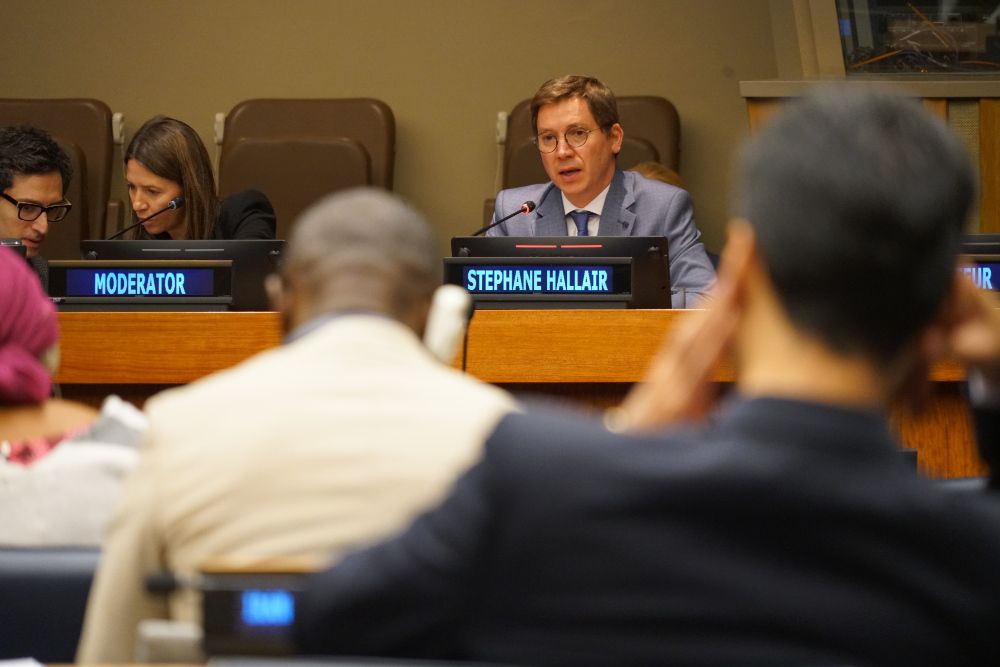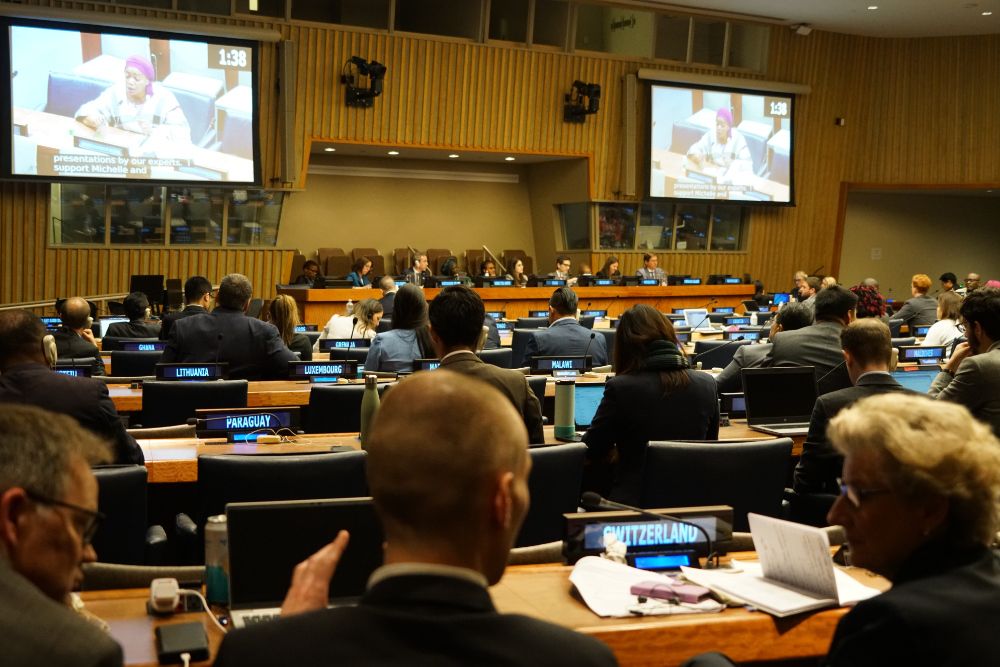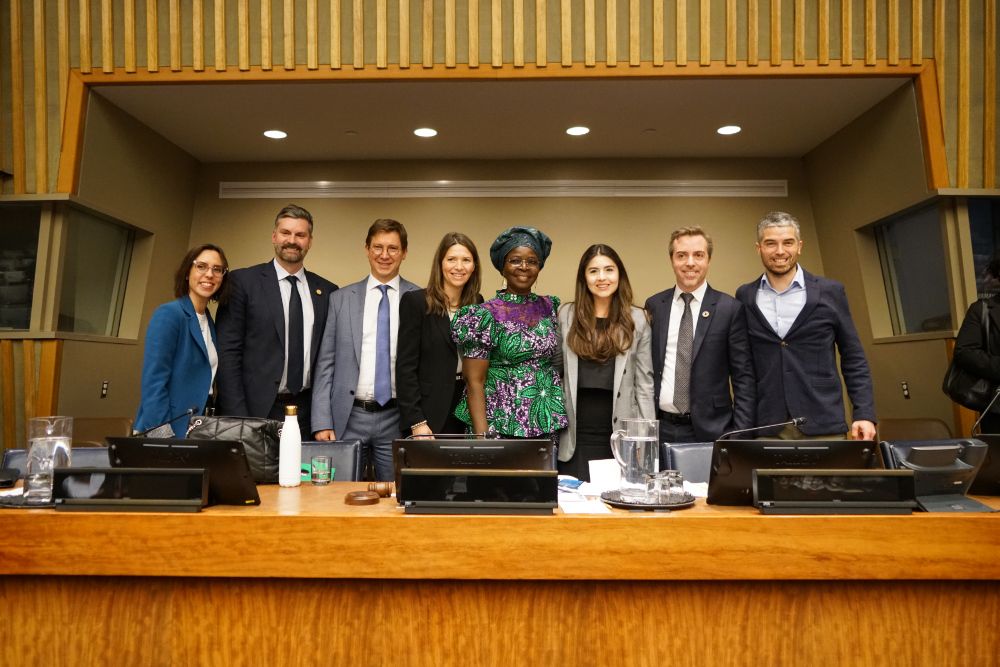
The private sector meets for the first time at the UNFF
In the wake of the 2022 Global Forest Summit, co-organized by Reforest'Action and attended by Juliette Biao, Director of the UNFF Secretariat, a regular dialogue has been established between the two organizations. As a result of these exchanges, Ms. Biao's brilliant leadership and a common desire to bring businesses closer to the UN Forum, a panel bringing together the private sector was held on May 9, 2023 in New York on the occasion of the 18th session of the UNFF.
Co-organized at UN headquarters by Nicolas Blain, Director of Institutional Relations at Reforest'Action, and Derek Nighbor, UNFF Focal Point for the Private Sector and President of the Forest Products Association of Canada, the panel aimed to discuss the positive role of regenerative agriculture and agroforestry in support of the Global Forest Goals.

Regenerative agriculture as an effective solution to achieve the Global Forest Goals
Moderated by Catherine Grenier, President of Nature Conservancy Canada, the panel featured Alexander Gillett, member of the Sustainable Markets Initiative's Agribusiness Taskforce (TF) and co-author of its Global Action Plan, Stéphane Hallaire, President of Reforest'Action and Michèle Zollinger, Global Head of Sustainable Pulp and Paper Sourcing and Forest and Climate Issues at Nestlé.
In front of an attentive audience composed of representatives of UN member states, the speakers presented in a tangible and concrete way how the private sector can, via regenerative agriculture in particular, contribute to the fight against deforestation and restore forest landscapes.
Carbon finance, an asset to develop agroforestry on a large scale
Based on concrete examples of projects deployed in Europe and Africa thanks to financing from Hennessy and Astra Zeneca, Stéphane Hallaire, among his various interventions, emphasized that the private sector can and must, via the carbon market in particular, contribute to mobilizing the 40 billion dollars needed each year by 2030 to finance the development of regenerative agriculture. And this, by developing robust projects, financed by quality carbon credits, sold at a high price to project owners and local populations.
The stakes are high, for the climate and biodiversity. And for the economy, because the investments necessary for the global development of regenerative agriculture would generate 530 billion dollars in business opportunities by 2050 and an economic gain of 3035 billion dollars by the same date according to The Food and Land Use Coalition. By helping to make business value chains regenerative, the development of this virtuous agriculture and agroforestry thus contributes to the fight against deforestation and the restoration of forest landscapes, two issues that are among the Global Forest Goals.
Towards a UNFF - Private Sector partnership
Hailing the quality of this first panel organized during a session of the UN Forum, Juliette Biao thanked the participants before stressing that this panel is only a step and that it opens the way to a partnership between the private sector and the UNFF. A partnership that is now to be built, a mission to which Reforest'Action will be happy to contribute. This partnership would be the concrete expression of SDG 17, which Reforest'Action had already illustrated in 2022 at the World Forestry Congress.
